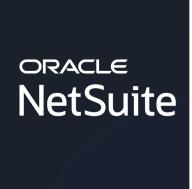

NetSuite ERP and Oracle Fusion Cloud ERP both compete in the ERP software market. NetSuite is considered more affordable for small to medium-sized enterprises, while Oracle Fusion Cloud ERP offers premium solutions with strong financial management and integration capabilities, justifying its higher cost.
Features: NetSuite ERP offers flexibility and scalability with its role-based workflow and comprehensive reporting, supporting real-time GL postings for diverse operations. It is known for ease of customization. Oracle Fusion Cloud ERP provides robust financial tools and rich integration options. It offers end-to-end process control and predictive analytics, making it suitable for large enterprises.
Room for Improvement: NetSuite ERP needs enhancements in manufacturing, CRM, and user interface, particularly when localization is required in global deployments. Oracle Fusion Cloud ERP is critiqued for its pricing and complexity, with calls for improved support, navigation, and customization to better align with various business models.
Ease of Deployment and Customer Service: NetSuite ERP allows both private and public cloud deployment. In contrast, Oracle Fusion Cloud ERP mainly uses public cloud models with some hybrid options. Customer support for NetSuite is mixed due to reliance on external partners, while Oracle Fusion Cloud ERP generally receives positive feedback for 24/7 support despite occasional delays.
Pricing and ROI: NetSuite ERP is viewed as cost-effective for smaller businesses, supporting an incremental adoption model. Oracle Fusion Cloud ERP, though high-cost, offers expansive finance and integration options, achieving strong ROI in large implementations. However, its pricing remains a challenge for smaller companies or those in emerging markets.
My current organization finds NetSuite ERP really helpful for cost reduction and return on investment in the long run.
Recently, major banks and companies are moving to Fusion because of its value.
For the support of NetSuite ERP, I find that you have to buy it to get fast responses.
The quality of service providers varies by region, causing delays in resolutions.
For golden partners, NetSuite ERP provides more options and enhanced reliability for scalability.
For any issues, Workato contacts NetSuite ERP directly to resolve tickets or problems.
The solution is very scalable.
The addition of AI features in NetSuite ERP would enable automatic triggering, approval processes, and event streams to IT teams or cross-functional teams.
They say it's quite buggy.
Without using options like ODA, manually entering data in the GLS screen or Oracle invoices is a time-consuming job.
My IT managers say that some of their features are quite expensive.
Oracle Fusion Cloud ERP might be considered expensive, especially in Pakistan due to conversion rates.
The interface is easily understandable even for a common user, unlike the NetSuite ERP direct website which requires more technical knowledge.
NetSuite ERP's inventory management feature has helped optimize stock levels and customer satisfaction because the inventory management module is decent.
With Oracle ODA, users can simply chat with the system to enter expenses and Oracle AI performs processes automatically, saving time for customers.
The functionality-wise features or functions of Oracle Fusion Cloud ERP that I find most valuable depend totally on the client.
| Product | Market Share (%) |
|---|---|
| Oracle Fusion Cloud ERP | 21.0% |
| NetSuite ERP | 19.2% |
| Other | 59.8% |


| Company Size | Count |
|---|---|
| Small Business | 27 |
| Midsize Enterprise | 6 |
| Large Enterprise | 5 |
| Company Size | Count |
|---|---|
| Small Business | 19 |
| Midsize Enterprise | 8 |
| Large Enterprise | 20 |
NetSuite ERP (Enterprise Resource Planning) is a cloud-based business management software that provides a suite of applications to support various business functions, such as finance, accounting, order management, inventory management, and human resources. It is designed to help organizations streamline and automate their operations, improve decision-making, and increase visibility into key performance metrics. NetSuite ERP integrates all business processes in a single system, providing a real-time, unified view of the business and enabling organizations to manage their operations more efficiently and effectively.
NetSuite ERP Features
NetSuite ERP has many valuable key features. Some of the most useful ones include:
NetSuite ERP Benefits
There are many benefits to implementing NetSuite ERP. Some of the biggest advantages the solution offers include:
Reviews from Real Users
NetSuite ERP is a solution that stands out when compared to many of its competitors. Some of its major advantages are its friendly user interface, customizable dashboards, reporting, scalability, stability, and much more.
GirirajInja, Head of IT operations at Karma technology, says, "As NetSuite ERP is a cloud product, a valuable feature I found in it is the very friendly user interface. You can set up shortcuts within the applications for frequently used reports or navigation. You can also customize dashboards in NetSuite ERP. Another feature I found valuable in the solution is good reporting. It has many industry-standard reports focused on finance and inventory. I also like the seamless switching between production and test environments and that you can customize the environments within NetSuite ERP.”
Another PeerSpot user, Mohammed I., Sales Manager at Inspirria Cloudtech, states, "NetSuite is significantly more affordable than Oracle EBS and offers a wider range of features than other OEMs.” He also adds, “[It] includes multiple modules, is scalable, and stable.”
Oracle Fusion Cloud ERP offers a complete, innovative, and proven solution for organizations of all sizes. Oracle Fusion Cloud ERP is a comprehensive, modern solution on a single cloud platform that includes built-in industry standards and modern best practices.
Oracle Fusion Cloud ERP provides your teams with advanced capabilities, such as AI to automate the manual processes that slow them down, analytics to react to market shifts in real time, and automatic updates to stay current and gain a competitive advantage.
Designed with scalability in mind, Oracle Fusion Cloud ERP manages core business areas including:
ERP software is the backbone of many organizations and Oracle offers a modern, connected approach combined with the ease and flexibility of the cloud. Oracle Fusion Cloud ERP delivers the functionality, analytics, security, mobile capabilities, and social collaboration tools needed to run a business today.
Why Customers Choose Oracle Fusion Cloud ERP:
No one likes big deltas between forecasts and actuals. Most models though are too limited, relying on sample datasets or just gut feel. Oracle Cloud ERP introduces machine-learning to predictive planning and forecasting so you can utilize broader datasets, reveal hidden bias, uncover significant deviations, and speed your overall response time.
Spend less time compiling data and more time understanding what it tells you. Whether preparing your narrative for the street or assessing potential M&A activity, Oracle Cloud ERP gives your team more time for strategic work by automating the most time-consuming, mundane business processes. With AI, up to 96% of transactions can be automated.
Oracle’s AI-powered digital assistant simplifies and speeds common tasks, allowing you to ask simple questions like “what’s the status of my open purchase requisitions?” and “what reconciliations are due today?” Personalized tasks like invoices or over-budget notifications are delivered to you proactively, so approvals move faster too.
Staying ahead of customer trends and emerging competitors gets harder every day. With Oracle cloud ERP, it's easier to identify and launch new business models—and monitor results in real time so you can constantly refine your approach. Paired with machine learning insights like customer churn, you'll predict and avoid problems before they can do harm.
We monitor all Cloud ERP reviews to prevent fraudulent reviews and keep review quality high. We do not post reviews by company employees or direct competitors. We validate each review for authenticity via cross-reference with LinkedIn, and personal follow-up with the reviewer when necessary.